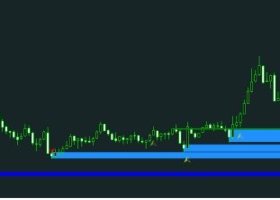As Neil Armstrong and the Apollo 11 crew prepared for their descent to the moon’s surface, an alarm sounded. A quarter of a million miles
away, Mission Control worked out the problem, and deduced that the alarm could be safely ignored. The result was the historic lunar
landing, fifty years ago this month.
Markets had a successful lift-off in the first half of 2019. Total returns for global and US equities were 15% and 17.6%, respectively, the best
since 1997. US investment grade (IG) bonds returned 7% and their high yield (HY) counterparts 10%, while European IG and HY bonds
delivered mid-to-high-single-digit percentage returns. In emerging markets, total returns for equities were 11.7% and 11% for
USD-denominated sovereign bonds. Overall, it was the best first half for balanced portfolios since 1998. But now a number of alarms are
sounding.
First, long-term rate expectations have fallen dramatically. “Japanification” looks increasingly plausible for the developed world.
Second, markets may be overestimating central bank rate cuts, when economic data still has the potential to change course. Third,
despite a truce in the US–China trade dispute, the broader conflict looks set to continue.
When alarms go off investors must also decide to ignore, adjust, or abort. We don’t think the alarms should be ignored. But we also think the
long-term opportunity cost of aborting is likely to be too high. With a recent turn towards easing, central banks are signaling they
intend to continue to try and support economic growth. In practice, that means they continue to support risk assets by driving down the
returns on safe assets like bonds and cash. So we adjust our strategy rather than underweight risk.
In our view, a lower for longer rate environment will support carry trades and income enhancement strategies. In our tactical asset
allocation we therefore increase the size of our overweight positions in select emerging market foreign exchange, euro investment
grade credit, and US dollar-denominated emerging market sovereign debt.
We maintain our overweight in global equities, and hold a large underweight in low-yielding high grade bonds. But with uncertainty about the effectiveness of central bank easing, and the risk of unpredictable shifts in the US-China trade dispute, we also hold countercyclical positions. These include an S&P 500 put, an overweight in the Japanese yen, and underweight in US 2-year bonds, alongside various relative value positions.
By UBS



